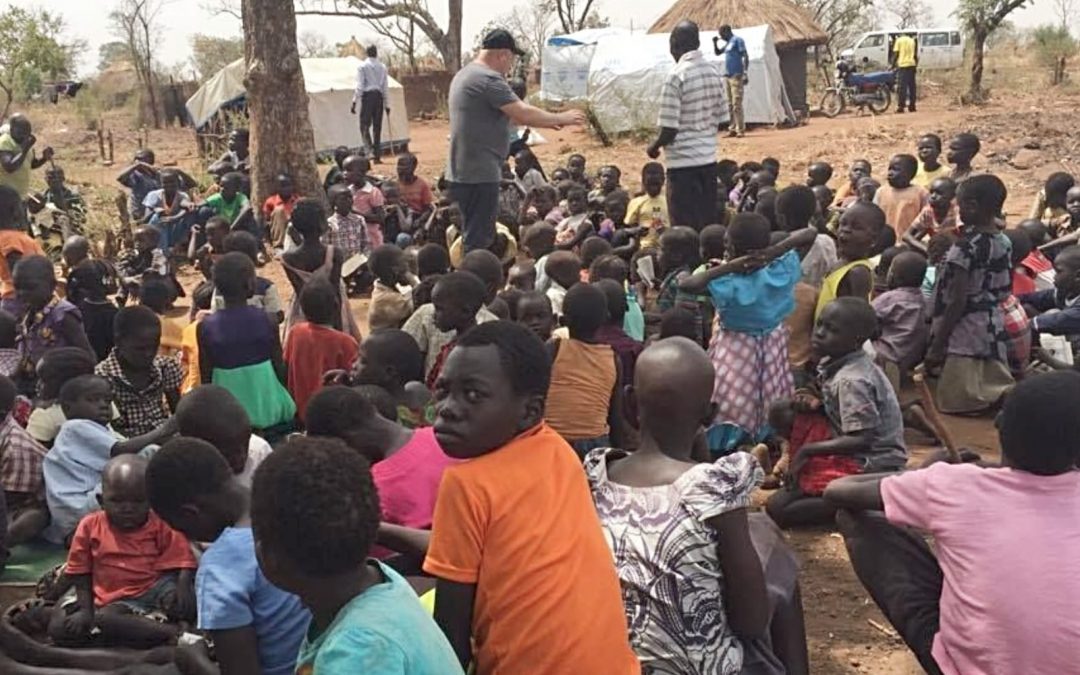A Sept. 12 peace agreement offers hope, tempered by realism, for a formal and final end to the multi-year conflict in South Sudan.
The African nation has experienced intermittent conflicts since gaining independence in 2011, with the current war erupting in 2013 due to a power struggle between national leaders.
The Sudan People’s Liberation Army (SPLA), also known as SPLA-IG (in government), is loyal to the nation’s president, Salva Kiir, and the SPLM In Opposition (SPLM-IO), is loyal to the former vice president, Riek Machar.
Under the peace deal – signed at the 33rd Extraordinary Intergovernmental Authority on Development (IGAD) assembly in Addis Ababa, Ethiopia – Machar would resume his role as one of five vice presidents.
IGAD comprises seven African nations – Djibouti, Eritrea, Ethiopia, Kenya, Somalia, South Sudan, Sudan and Uganda – that work collaboratively toward “peace, prosperity and regional integration.”
The violence in South Sudan has displaced millions, resulted in minors being forced to fight as child soldiers, increased child abductions and human trafficking, led to widespread hunger, prevented around three-quarters of the nation’s children from attending school, destroyed much of the country’s infrastructure and economy and claimed tens of thousands of lives.
Previous peace agreements have been reached but failed to hold for more than a few months.
Many observers responded with qualified optimism regarding this latest ceasefire, including David Shearer, special representative of the secretary-general for South Sudan and the head of the U.N. mission in South Sudan.
“The key ingredient still lacking is trust. The personalities signing the agreement have in the past been former friends and foes,” he said. “From my discussions with all parties, suspicion is widespread. … These people have got animosities that go back two decades, three decades even.”
A Sept. 12 press release from the Enough Project stated that the agreement has “significant flaws, including failing to address the looting by leaders of state resources and revenues. These shortcomings could easily lead the country right back to full-scale war.”
According to an Associated Press report, two days after the peace agreement was signed, a military skirmish took place with both sides blaming the other for the violence.
Edward Dima, pastor of First Baptist Church in Kajo-Keji, South Sudan, and president of the Baptist Convention of South Sudan, confirmed this report in an email to EthicsDaily.com.
“Unfortunately … there was a continued fighting between the government forces and the opposition forces in West of Kajo-Keji county and in Kupera and Jamara in Lainya County,” he said.
A U.N. peacekeeper who was part of a four-vehicle convoy was shot and wounded on Saturday, Sept. 14, by a government soldier, an act that Shearer called “unacceptable.”
“This situation is evidence of a lack of command and control of armed forces, which has resulted in unruly elements who continue to commit human rights abuses in the area,” he continued. “It is beholden on the Government to bring their forces under control.”
Among the millions forced to flee their homes and live either as internally displaced persons within South Sudan or as refugees in surrounding nations, there remains widespread uncertainty about when it will feel safe to return.
“In most cities, it’s yet a ghost town,” Dima said, “and the population is not willing yet to go back to South Sudan until they are sure. As for the church and innocent civilians in South Sudan, we need peace desperately.”
He continued, “We need politicians to be truthful in the negotiations for peace. We need IGAD countries to avoid looking [out] for their individual interests in South Sudan but to seek for peace from their hearts for South Sudan.”
Editor’s note: Previous EthicsDaily.com articles related to South Sudan can be found here. Pictures from South Sudan provided by Dima are available here. A 2015 EthicsDaily.com video interview with Dima can be viewed here.


